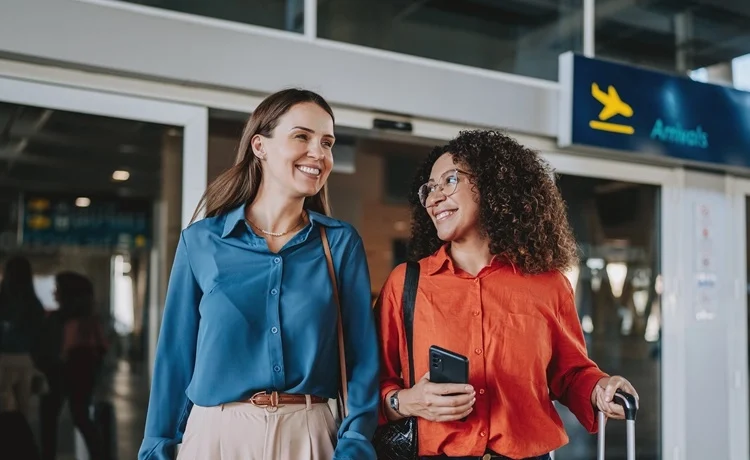Introduction: Travel as a Way of Life
For many, travel has transcended the status of a mere activity or occasional luxury. It has become a lifestyle—a pursuit intertwined with personal growth, freedom, and a deeper connection to the world. As global connectivity increases, travel has evolved from a traditional vacation to an ongoing journey that molds one’s identity and worldview. The “travel lifestyle” now represents a commitment to exploring diverse cultures, seeking adventure, and embracing new experiences, all while maintaining the flexibility to live life on one’s own terms. This article will explore the multifaceted dimensions of the travel lifestyle, offering insights into its appeal, its challenges, and how it can be seamlessly woven into the fabric of daily living.
The Rise of the Travel Lifestyle
Historically, travel was seen as a luxury reserved for vacations or business trips. However, over the past few decades, the concept of living a travel lifestyle has gained significant momentum. This shift can be attributed to several factors, including advancements in technology, the rise of remote work, and a cultural pivot towards experiences over material goods. The digital age, in particular, has made travel more accessible than ever before, enabling individuals to work, study, and explore across the globe without being confined to one physical location.
Remote Work: The Catalyst for the Travel Revolution
One of the most significant factors fueling the travel lifestyle is the rise of remote work. With the advent of technology, many people now have the ability to work from anywhere, as long as they have an internet connection. This flexibility has led to the emergence of “digital nomads,” individuals who travel while maintaining their professional careers. From tech entrepreneurs to freelance writers, remote workers are increasingly prioritizing mobility and adventure. The idea of working from a beach in Bali, a café in Paris, or a mountain retreat in the Swiss Alps has become a tangible reality for many.
-
Digital Nomadism: Remote work allows individuals to design their own schedules, meaning they can spend more time exploring their surroundings while still earning a living.
-
Work-Life Integration: Unlike the traditional work-life balance, which separates career from personal time, travel lifestyle enthusiasts aim to integrate both aspects, blending work and exploration.
The Pursuit of Authenticity and Cultural Immersion
Another key driver behind the travel lifestyle is the growing desire for authentic experiences. Travelers no longer seek to simply visit a destination; they want to live it, to understand its culture on a deeper level, and to form genuine connections with locals. Whether it’s volunteering in a remote village, participating in traditional cooking classes, or learning a new language, the goal is no longer just to observe but to actively engage with the environment.
-
Slow Travel: Instead of rushing through a city in a few days, slow travel focuses on staying longer in one place, fostering deeper connections with the community, and gaining a nuanced understanding of the culture.
-
Local Experiences: Travelers are shifting away from mass tourism to more intimate, local experiences—whether it’s attending a local festival, exploring hidden neighborhoods, or savoring regional cuisine.
The Benefits of Adopting a Travel Lifestyle
While the travel lifestyle can undoubtedly present challenges, its benefits far outweigh the drawbacks. For those who choose this way of life, the rewards are often profound, influencing both personal growth and overall well-being.
Personal Growth and Self-Discovery
One of the most significant advantages of adopting a travel lifestyle is the opportunity for personal growth. Travel exposes individuals to new ideas, perspectives, and ways of life, fostering a greater sense of empathy, resilience, and adaptability. Whether you’re navigating a language barrier, adapting to a new time zone, or overcoming travel-related obstacles, the process of moving through unfamiliar territory builds confidence and self-reliance.
-
Cultural Awareness: Spending time in different parts of the world exposes travelers to diverse ways of thinking, living, and problem-solving, expanding their worldview and deepening their understanding of global interconnectedness.
-
Resilience and Adaptability: Constantly being on the move requires flexibility. Challenges, such as missed flights, unfamiliar local customs, or language barriers, help travelers build emotional resilience and mental flexibility.
Greater Freedom and Flexibility
At the heart of the travel lifestyle is the freedom it offers. By stepping away from traditional 9-to-5 constraints, individuals can design their lives around what truly matters to them—exploration, adventure, and discovery. The ability to choose when and where to work allows for a more balanced approach to life, where leisure and career are not in competition but coexist harmoniously.
-
Flexible Schedules: Without the confines of a conventional office job, travel lifestyle enthusiasts have the freedom to structure their day around their personal preferences, allowing for more spontaneity and creative exploration.
-
Living with Purpose: The travel lifestyle encourages individuals to live with intention, focusing on experiences that align with their values and passions rather than societal expectations or material pursuits.
Connection to Nature and Adventure
For many, the travel lifestyle is synonymous with adventure. It’s about seeking out new landscapes, whether it’s trekking through the Amazon rainforest, surfing in Costa Rica, or hiking the Swiss Alps. The constant exposure to nature’s wonders fosters a sense of awe and appreciation for the planet’s beauty.
-
Outdoor Exploration: Traveling often leads to engaging with nature—whether through hiking, kayaking, or exploring national parks. These experiences help deepen a connection to the natural world and promote physical well-being.
-
Adrenaline-Fueled Experiences: Many travelers embrace adventure sports, from paragliding to scuba diving, as a way to add excitement and challenge to their lives.
Overcoming the Challenges of a Travel Lifestyle
Though the travel lifestyle is filled with opportunities, it’s not without its challenges. For those considering this path, it’s important to acknowledge the obstacles that may arise and how to navigate them.
Loneliness and Social Isolation
Traveling frequently can sometimes lead to feelings of loneliness, especially for those who are on the move alone. Constantly meeting new people and leaving them behind can make it difficult to form lasting relationships.
-
Building Communities: Many travelers combat loneliness by joining online communities, attending meetups, or staying in co-living spaces designed for digital nomads. These networks provide opportunities for shared experiences and camaraderie.
-
Staying Connected: Modern communication tools, such as social media, video calls, and instant messaging, allow travelers to stay connected with friends and family, providing emotional support even when physically distant.
Financial Stability and Sustainability
Maintaining a steady income while constantly moving can be challenging. Travel, though affordable in many parts of the world, can still be expensive, particularly when factoring in accommodation, flights, and daily expenses.
-
Remote Work and Passive Income: To support a travel lifestyle, many individuals create streams of passive income, such as blogging, affiliate marketing, or e-commerce, allowing them to work less while still funding their travels.
-
Budgeting and Financial Planning: Living a travel lifestyle often requires careful budgeting, such as choosing budget accommodation, cooking meals instead of dining out, and traveling during off-peak seasons to reduce costs.
Maintaining Health and Well-Being
A constant change of location can make it difficult to maintain a healthy lifestyle. Access to gyms, healthy food options, and routine care can be sporadic, particularly in more remote areas.
-
Staying Active on the Road: Travelers often incorporate physical activity into their daily routines by walking, hiking, or doing yoga in scenic locations.
-
Mindfulness and Mental Health: Traveling can sometimes lead to burnout or mental fatigue. It’s important for travelers to take time for self-care, whether through meditation, journaling, or simply taking a break to recharge.
Conclusion: Crafting a Life of Adventure and Fulfillment
The travel lifestyle represents much more than a trend—it’s a transformative way of life that fosters freedom, growth, and adventure. It’s about designing a life that is rich in experiences, authentic connections, and a deep sense of fulfillment. While it comes with its own set of challenges, the rewards of living a travel-centric life far outweigh the hurdles. For those who are ready to embrace a life without borders, the world becomes not just a place to visit, but a home to explore, learn, and grow in. Ultimately, the travel lifestyle is not simply about going to new places; it’s about cultivating a mindset that welcomes change, embraces new experiences, and continuously seeks personal transformation.







